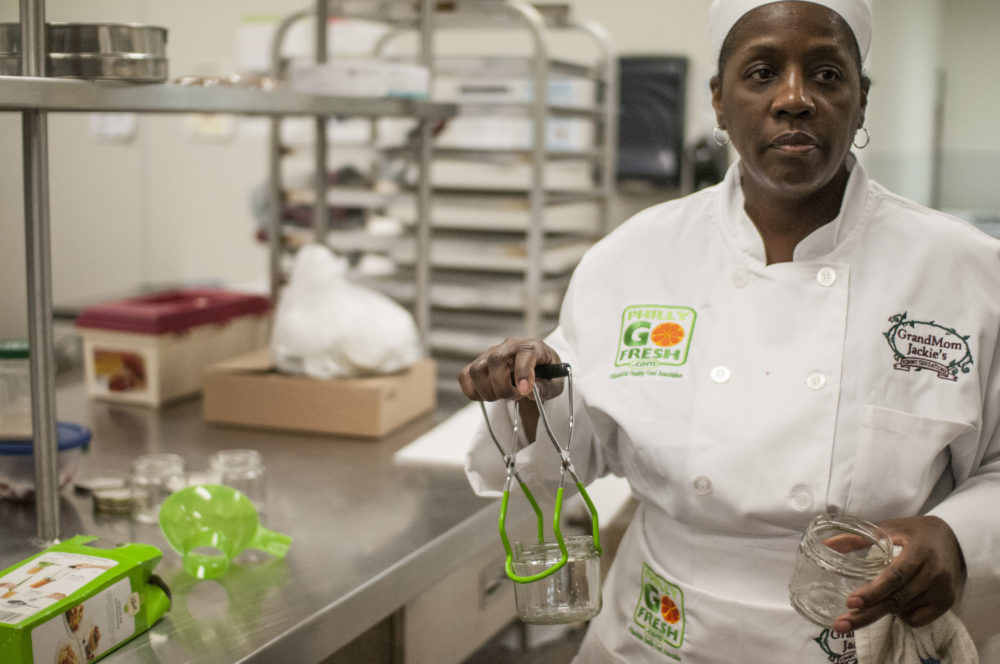In preparation for a City Council hearing, Stephanie Sun spoke to Chinese immigrant families about their experiences with robberies at the restaurants they owned. She remembers: “It tore up my heart.”
She hopes a new $25,000 StartUp PHL city grant can help prevent instances like that in the future.
Sun and Samuel Tran, two employees of the Welcoming Center for New Pennsylvanians, will use the grant to implement entrepreneurship programming for immigrant youth. They aim to build bridges between youth and parents, between immigrants and law enforcement and among immigrant communities of various ethnicities.
The Welcoming Center has a long record of helping different communities communicate. Herman Nyamunga, Director of Global Enterprise Hub & Small Business Development, said it is a central component of work at the Welcoming Center: “We have a collaborative approach, which we means that we welcome different communities,” he said.
Sun, who now works as an outreach specialist in the Small Business Development Department of the Welcoming Center, recognized a need to bridge these gaps when she helped Chinese restaurant-owning families testify in a City Council public hearing last October.
According to an data visualization map from the New American Economy, immigrants are 43.1 percent more likely to be entrepreneurs than the native population, and there are more than 40,000 immigrant entrepreneurs in Philadelphia. But Sun’s experiences with immigrant communities led her to discover just how isolated immigrant small business owners are.
“Immigrants don’t know where to ask to help,” she said, adding that they don’t know about government support systems like the City of Philadelphia’s Department of Commerce.
The gap between immigrant communities and government authorities exists in large part due to language and cultural barriers faced by limited English proficient communities. Sun said it’s also due to the fact that many immigrant communities are scared of government. They carry negative experiences with government from their home country — they believe that they will only be helped with strings attached. Many also fear for their status in this country, which all leads to a “different understanding of government here,” Sun said.
And she aims to change that: “Building trust is the most important.”
###
Through recruitment programs for Philadelphia high school and college students, either immigrants or children of immigrant families, Sun and Tran will help run free entrepreneurship and business technology classes. They hope that youth will “use acquired skillsets and knowledge to go back to their family businesses.”
Youth are the target audience for the entrepreneurship classes due to their English proficiency, in contrast to less uniform English proficiency among adult-aged immigrants. Class topics vary but will address a wide range of immigrant-specific entrepreneurship initiatives, from online ordering to social security to digital accounting. Sun explained that limited English proficiency can strongly inhibit usage of services such as Google Businesses and Maps, and online visibility of immigrant businesses is crucial, yet often unaddressed.
Many immigrant-owned businesses don’t even use email, Sun said. They don’t have the time to learn how.
The jackpot lies in a Call of Business Plans from all immigrant youth. Three winners will be granted paid internships at the Welcoming Center to get guidance on their business plans. Sun hopes that children can also help their parents’ businesses.
Everyone involved will be invited to join an ongoing Young Entrepreneurship Leadership Network (YELN), which Sun explained will have “a longterm vision as a junction for participants to access continuous guidance, support and updated business technology and business resources, all of which shall be shared in immigrant communities.”
Networks like YELN are part of the third gap that the Welcoming Center hopes to bridge: gaps among immigrant communities of various ethnicities and race. Language and cultural barriers, racial issues and geographical separation all contribute to lack of cohesion among immigrant communities. Sun hopes this can be addressed when immigrant youth “sit in one classroom and learn from each other.”
“If the children communicate, the communities communicate,” she said.
If you’re interested in joining the program, email Sun for more information at stephanie@welcomingcenter.org







